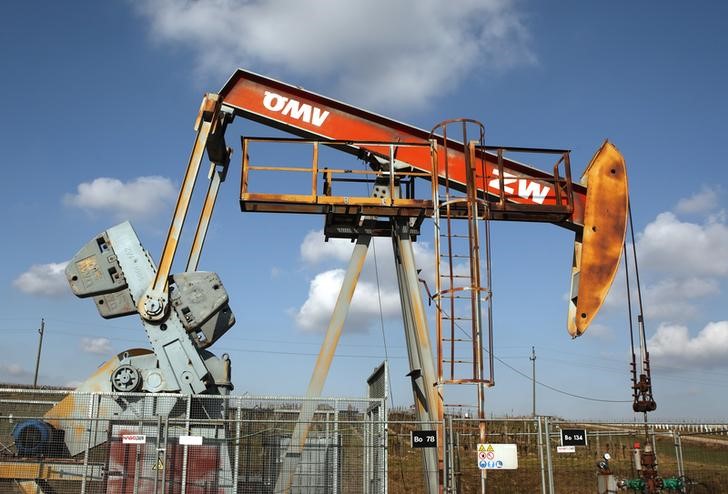By Simon Falush
LONDON (Reuters) - Crude oil futures fell on Wednesday as investor focus shifted back to a deep global supply glut and away from the threat of escalating violence in the Middle East, which pushed prices to two-week highs the previous day.
Brent (LCOc1) was down 76 cents at $45.36 a barrel at 1003 London time, reversing brief gains earlier in the session.
The benchmark had settled up $1.29 at $46.12 on Tuesday, having hit its highest since Nov. 11 at $46.50 after Turkey shot down a Russian fighter jet. It had risen for five consecutive days, its longest run of positive sessions since April.
U.S. West Texas Intermediate (WTI) futures (CLc1) fell 61 cents to $42.26 a barrel, having gained $1.12 to $42.87 on Tuesday.
Data from industry group the American Petroleum Institute (API) showed that U.S. crude stocks rose by 2.6 million barrels in the week to Nov. 20, more than double analysts' expectations for an increase of 1.2 million barrels.
"Inventories surprised on the upside and it will draw back attention to the supply that hangs over the market," said Hans van Cleef, senior energy economist at ABN Amro in Amsterdam.
The API data came ahead of figures from the Energy Information Administration, due at 1530 GMT (1030 EST) and expected to show crude oil stocks rose for a ninth consecutive week. [API/S] [EIA/S]
OPEC is determined to keep pumping oil vigorously despite the resulting financial strain -- even on the policy's chief architect, Saudi Arabia -- alarming weaker members who fear that prices may slump further towards $20.
Turkey shot down a Russian warplane near the Syrian border on Tuesday, saying the jet had violated its air space. Russian President Vladimir Putin said the plane had been attacked inside Syria and warned of "serious consequences" for what he termed a stab in the back administered by "the accomplices of terrorists".
President Tayyip Erdogan said on Wednesday that Turkey did not want any escalation and that it had acted simply to defend its own security and the "rights of our brothers" in Syria.
U.S. President Barack Obama and French President Francois Hollande, meeting in Washington, urged against an escalation, while NATO Secretary-General Jens Stoltenberg said the military alliance stood in solidarity with Turkey.

Obama and Hollande also pressed Russia on Tuesday to focus its attacks in Syria on Islamic State (IS) militants.